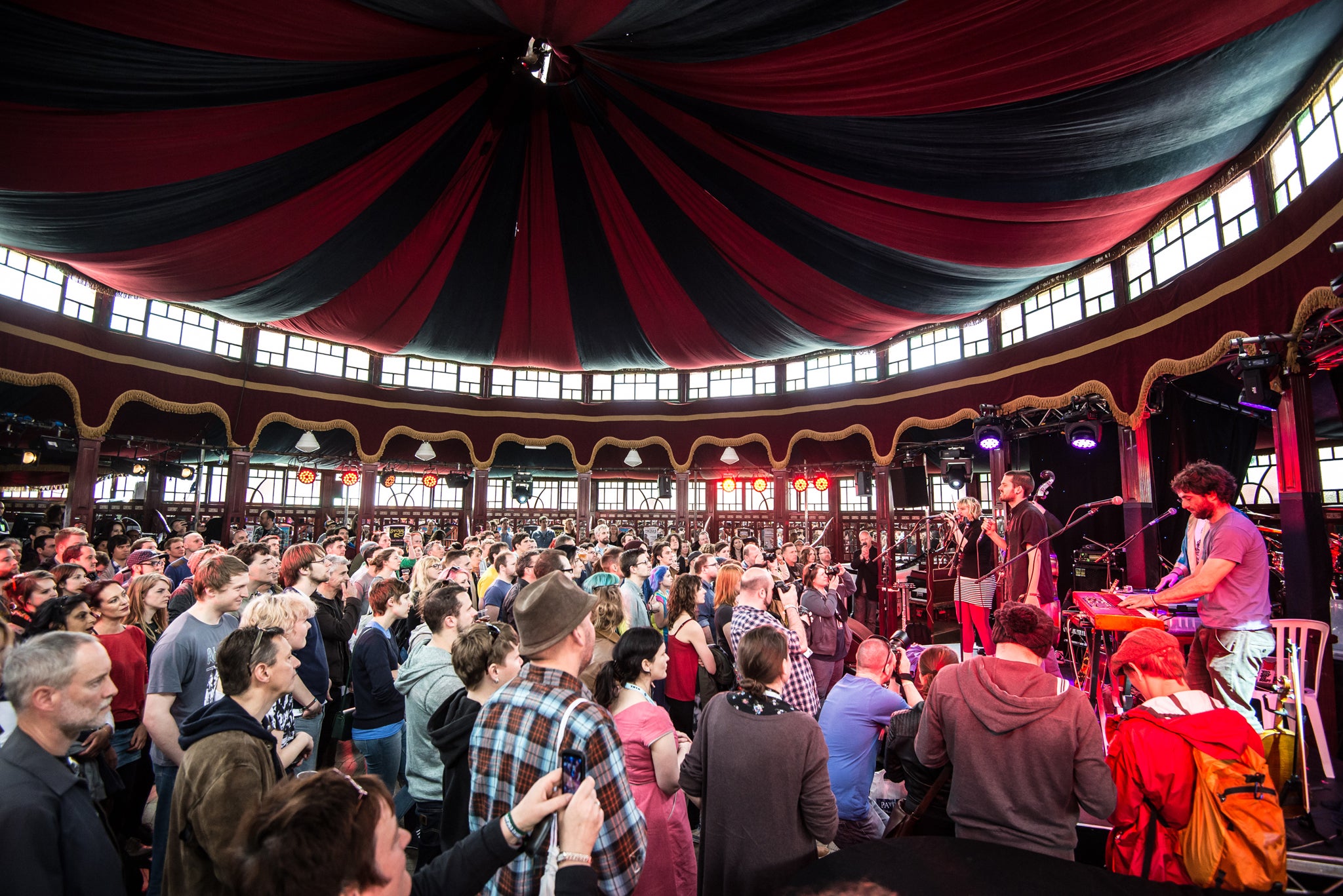The Great Escape, review: Kate Tempest stands out proudly in midst of hustling between scattered venues
George The Poet shows how difficult Tempest’s trick is

Your support helps us to tell the story
From reproductive rights to climate change to Big Tech, The Independent is on the ground when the story is developing. Whether it's investigating the financials of Elon Musk's pro-Trump PAC or producing our latest documentary, 'The A Word', which shines a light on the American women fighting for reproductive rights, we know how important it is to parse out the facts from the messaging.
At such a critical moment in US history, we need reporters on the ground. Your donation allows us to keep sending journalists to speak to both sides of the story.
The Independent is trusted by Americans across the entire political spectrum. And unlike many other quality news outlets, we choose not to lock Americans out of our reporting and analysis with paywalls. We believe quality journalism should be available to everyone, paid for by those who can afford it.
Your support makes all the difference.Anything bigger than a broom cupboard in Brighton has become a venue. With 450 bands playing The Great Escape, 200 at the Alternative Escape, and the ongoing Brighton Festival and Fringe, eluding the artists massed here certainly would take Colditz-style ingenuity.
Even in such a crowded field, Kate Tempest stands out proudly. The Mercury-nominated rapper and Ted Hughes Award-winning poet plays two sets showcasing each side of her work. Her power lies in a burning, lucid sense of injustice, and a loving desire to reach out and heal damaged hearts. “Circles” is a driving techno anthem, and she’s happy to ride her supportive band’s beats. But “Hold Your Own” becomes a desperate incantation, meant to break the spell of consumerist distraction and apathy which has hypnotised so much of Britain. She hunches over with the effort of trying to shift reality with music, and seems to be saving herself as much as anyone.
George The Poet is on the same bill, and shows how difficult Tempest’s trick is. An inner city Ugandan-Briton who beat the odds to go to Cambridge University, he is inspirational, but sugars his lyrics’ medicine till it all but dissolves. Declaring “I don’t believe the unemployed are null and void” at least betters the General Election campaigns for compassion.
The Great Escape is about short, sharp hits of sound more than such set-piece gigs, caught by hustling between scattered venues. “Secret” shows by Paul Weller and The Maccabees are among the rewards. Appearing at Hove’s 500-capacity The Old Market, a few yards up from the seafront on a perfect summer afternoon, Weller seems to take his cue from the weather. “I’m Where I Belong” is hazily happy sunrise pop; like other tracks from his new Saturns Pattern album, its jazzy stretch and sway recalls The Style Council. The Maccabees’ midnight show, though, suffers from the inoffensiveness which is current British rock’s abiding sin.
Deeper-rooted American strategies come from the graceful, literate Southern rock of Virginia’s Sons of Bill, Alabama Shakes’ benign, softly rolling Southern soul-rock, and especially from their fellow Alabamans Lee Baines III & The Glory Fires. Baines’ complex, questioning pride in his state is from a liberal, liberating perspective, and he fiercely leads a band who swing with ball-and-chain force. When Essex’s The Bohicas follow, their R’n’B sounds contrastingly vague and slick.
With much of Europe’s music business in town, many fascinating conversations are had between sets in Brighton’s plethora of pubs, a relaxed cultural exchange happening alongside the hard-selling. Then there’s the Alternative Escape, a parallel, often free fringe event, majoring in acts below any radar. Bess Atwell, for instance, a 20-year-old singer-songwriter from nearby Lewes, whose song “Jessie” suggests a promising folk poet of suppression and inner anxiety. It’s 1.30 on Sunday morning when I walk up from the sea to hear the closing synth-pop moments of Luxembourg’s Say Yes Dog, and my Escape ends.
Join our commenting forum
Join thought-provoking conversations, follow other Independent readers and see their replies
Comments